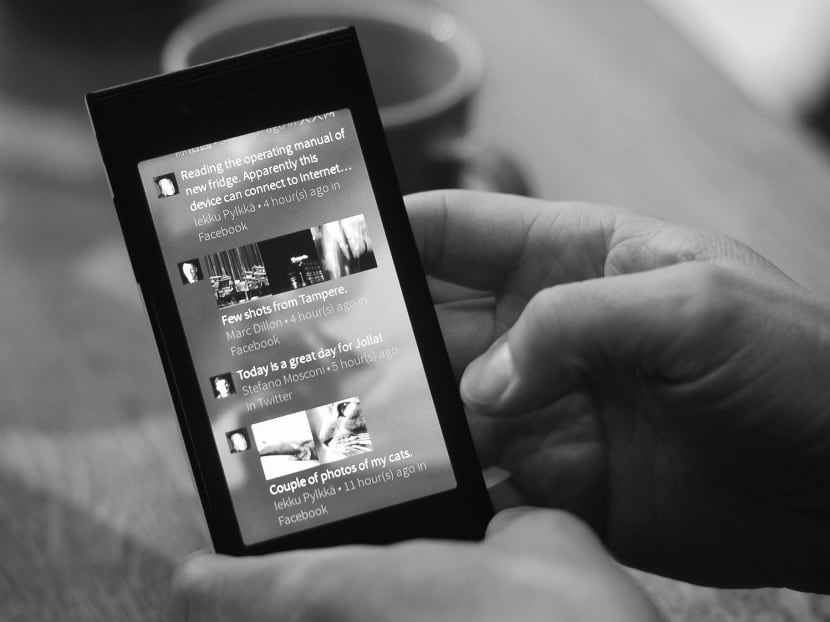Itch to check your inbox is only human
In 1972, a study known as the Stanford Marshmallow Experiment tested the ability of young children to delay gratification. Follow-up research revealed that those who managed to resist scoffing a candy placed in front of them for a full 15 minutes — on the promise of an additional treat — had superior scholastic achievements and better health later in life.

As part of a tribe, humans crave social reinforcement, whether that is ‘likes’ on Facebook, retweets on Twitter or email messages that reassure us we are needed by others. Photo: REUTERS
In 1972, a study known as the Stanford Marshmallow Experiment tested the ability of young children to delay gratification. Follow-up research revealed that those who managed to resist scoffing a candy placed in front of them for a full 15 minutes — on the promise of an additional treat — had superior scholastic achievements and better health later in life.
When I first came across this seminal work about self-control, I entertained the rather arrogant assumption that I would have been among the third of children who waited.
Surely, at the tender age of five, I was a cunning, independent strategist. However, whatever the truth may be, as an adult, I am constantly confronted with the temptation of tasty digital bites. And I’m not talking about Pinterest — it is actually work email that I find hardest to resist.
Some would regard this attention to email as a modern disaster of near-tragic proportions. Surely, my employer should follow Volkswagen’s much-publicised approach of blocking emails outside work hours or copy Daimler’s mechanism of automatically binning messages that have the nerve to hit my inbox when I’m busy hitting the beach.
While connectivity haters at Volkswagen and Daimler will go on hating and devising ways to forcibly unplug employees, my understanding of my digital habit has evolved, aided in part by some recent research.
A study, led by the University of Florida’s Klodiana Lanaj, demonstrated that employees who enjoy a high degree of autonomy in their jobs are less likely to experience negative effects from using their smartphones late at night for work. In contrast, those with less autonomy were, understandably, depleted the next day and hence less engaged in the office.
However, autonomy is only a prerequisite for a non-destructive corporate email habit. The inbox’s ability to scratch an ever-present itch is a consequence of its fit with human nature.
EXCITED OVER EMAIL
For many of us, checking messages is an exercise in hope and anticipation. Maybe, news will arrive of a desirable opportunity, or sweetly tucked among the mass of emails and spam will be a message from a dear friend.
All things considered, the state we are in when we seek such morsels is not much different from a gambler playing a slot machine in the hope of getting a row of bananas.
The anticipation of a potential reward is enough in itself to trigger the release of the feel-good neurotransmitter dopamine. Its release also creates a state of focus.
The makers of Gmail have cottoned on to this — the rainbow of colours one sees on the smartphone version of its product when waiting for new messages to load is positively transfixing.
In Hooked, a coming book about how to build habit-forming products such as email, Mr Nir Eyal posits that the variable rewards people seek can be divided into three categories: Those of “the Tribe, the Hunt and the Self”.
As part of a tribe, humans crave social reinforcement, whether that is “likes” on Facebook, retweets on Twitter or email messages that reassure us we are needed by others.
On the hunt, where the goal once was food and shelter, there is now a drive for material objects, information and opportunities — the attainment of which is often managed via email.
Lastly, there are rewards of the self that drive us to “deal” with email. Some even strive to achieve a state of Zen known as Inbox Zero. I am one of those nutters.
As Mr Eyal points out, there is often no rational reason to desire rewards of the self such as these and, yet, we desire them nonetheless. While experiencing visible discomfort, crazy people solve Rubik’s Cubes, run marathons and play the latest infuriating game, Swing Coptors, by the creator of Flappy Bird.
Managers seeking to get the most out of the habit of checking corporate email would be smart to lay the groundwork by ensuring the people who report to them have a sense of autonomy.
Email software creators have done much of the rest by engendering the natural drive to check in. While a constant itch to refresh one’s inbox can be distracting, at least it isn’t as fattening as marshmallows. THE FINANCIAL TIMES
ABOUT THE AUTHOR:
Lisa Pollack is head of new projects at FT.com






